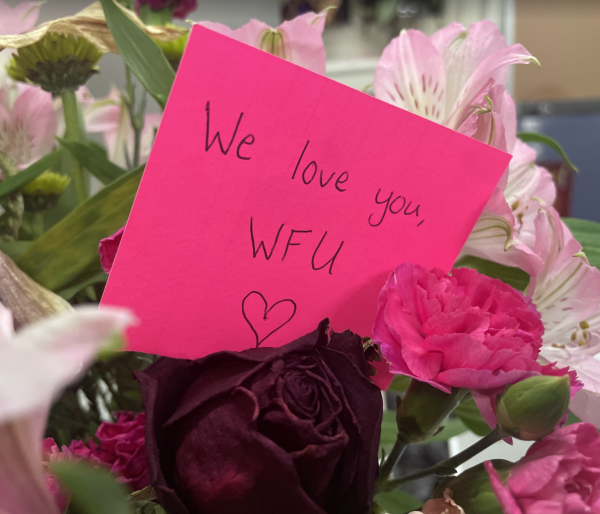An Open Letter to Wake Forest University:
On Jan. 27th, President Donald Trump signed a discriminatory executive order banning immigrants of predominantly Muslim backgrounds from entering the U. S. In response to this order, lawyers from the American Civil Liberties Union and the National Immigration Law Center worked pro bono at airport demonstrations across the country to argue before a federal court and win an emergency stay on a portion of the order.
Global protests erupted to show solidarity and support for those who were temporarily detained, deported, or refused entry. The former U.S. President has criticized the action, while the acting Attorney General of the United States, who instructed the Justice Department that defending the executive order would be in direct defiance of constitutional principles, has been summarily fired by Trump.
We are writing to express deep dissatisfaction with the official response issued by University President Nathan O. Hatch in response to these political developments — an affirmation which is careful not to oppose the political commitments of university investors, but which does not go far enough to openly condemn this ban.
Hatch’s remarks fail to provide concrete reassurances that preserving the safety and multicultural interests of a diverse student body are a priority. Nestled among other informational bulletins and obliquely titled: “A message from President Hatch to the Wake Forest community,” the university president’s email is a dilute response to a constitutional and moral crisis that ought to receive the strongest condemnation from a university that prides itself on embodying the values of a Pro Humanitate commitment to “character, wellness [and] global awareness.” We point to the response by Amy Gutmann, president of the University of Pennsylvania, as a model for an appropriate reaction.
Although we applaud the Pro Humanitate Institute’s amendment of Hatch’s remarks and support the sentiment that “No university can lay claim to providing a world class education unless it welcomes the world to its campus,” we cannot simply wait with open arms. We must also act. Civil discourse is key, but it is not a cure-all; civil discourse did not secure voting rights for women, desegregate school systems, grant citizenship to former slaves or produce the Declaration of Independence. Furthermore, the recent refusal to declare Wake Forest a sanctuary campus does not adequately address the concerns of the student body that generated the petition, and student government continues to call for more public measures of support for minority students. Visible action fosters a sense of community, Wake Forest’s support of the Deferred Action for Childhood Arrivals (DACA) policy and the university’s “Every Campus a Refuge” program, which provides housing and other aid to political refugees, are good starting points. There’s more to be done, however. Wake Forest has not publicly endorsed the Bar Removal of Individuals who Dream and Grow our Economy act (BRIDGE), a bipartisan bill that allows individuals in the U.S. who arrived as children to remain for another three years without the threat of deportation while Congress addresses changes to immigration law.
This letter is a call to action from Wake Forest alumni insisting that our alma mater does more to denounce discrimination and address the concerns of its international student body. In these volatile times of political polarization and unpredictability, merely advocating for non-discrimination is not sufficient — Wake Forest must also leverage its position as a world class university to speak against it and work towards dismantling systems that practice it. “For humanity” is not enough. Now, the values of Pro Humanitate compel us as a global Wake Forest community to be — actively, loudly, uncompromisingly — anti-racist, anti-sexist, anti-homophobic and oppose discrimination in all forms.
With respect and hope,
Carleigh N. Morgan (Class of 2012) and Joshua D. Courtney (Class of 2013)














